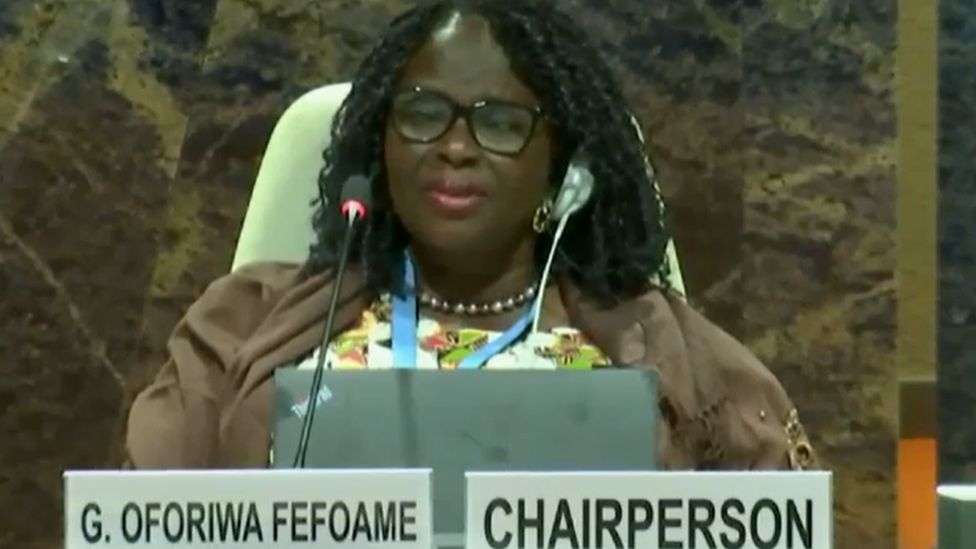The UK government declined to attend a UN review of its treatment of disabled people after an inquiry warned of "grave" violations of their rights.
A 2016 report by a UN committee found welfare reforms had "adversely" affected disabled people in the UK.
The UK government was scheduled to attend a hearing at the UN in Geneva on Monday to assess progress.
But it pulled out, saying it would meet UN officials in March 2024 instead, sparking anger from campaigners.
A government spokesperson said it had followed all of the committee's required procedures and was committed to the "advancement of rights for disabled people in this country".
The UK published responses to the UN's Committee on the Rights of Persons with Disabilities (CRPD)'s recommendations in 2018, 2021 and 2022 and was due to give a further update this year.
After the UK delegation's no-show on Monday, the CRPD held a follow-up feedback session with British disability rights groups.
'Disgrace'
A committee spokesperson advised the group to raise the postponement of the review with the UK government.
Linda Burnip, co-founder of the Disabled People Against Cuts campaign, said the government's no-show was "very offensive" to the UN's disability committee.
She said her group "has no paid staff and our main core funding is from supporters' donations, so frankly if we can meet deadlines I think it's a disgrace that the government can't too".
Kamran Mallick, CEO of Disability Rights UK, said people from disabled rights organisations "attended the meeting in Geneva this week despite the huge challenges of inaccessible and unfriendly flights, hotels, and transport".
"No one from the UK government was there to hear the facts, figures and stories of increasing poverty, lack of support, inaccessible services and infrastructure that limit the life chances of disabled people," Mr Mallick said.
Mr Mallick said the government's failure to attend "signals the low priority they give to disabled people and the worsening inequalities we face".
Progress scrutinised
The Equality and Human Rights Commission (EHRC) was among the organisations to give evidence to the committee in Geneva.
Rachel Albinson of the EHRC said there was concern that the "grave and systemic" violations the committee found during its inquiry persisted, and more recent changes had exacerbated many of the issues.

A few weeks ago, the human rights watchdog accused the UK government of making "slow progress" in improving the lives of disabled people.
In a report submitted to the UN, the EHRC said some of the recommendations made by the 2016 inquiry had not been delivered.
The EHRC report warns that many disabled people continue to face discrimination in the UK, and the situation continues to worsen, particularly in light of current cost-of-living pressures.
In a letter to Kemi Badenoch, the minister for women and equalities, and Minister for Disabled People Tom Pursglove, the EHRC said it was disappointing the UK government has postponed its participation in the UN committee's review.
The Scottish Human Rights Commission, which co-signed the letter, said the delay "risks sending the message that disabled people's rights are not a priority".
"The UK government must take its human rights obligations seriously and fully cooperate with the international accountability processes it has signed up to," said Jan Savage, executive director of the Scottish Human Rights Commission.
The government said it was "fully committed to the UN Convention on the Rights of Persons with Disabilities", an international human rights treaty which the UK has signed up to.
Last month, the government launched a consultation on its Disability Action Plan.
An Equality Hub spokesperson said work had been undertaken to reform the disability benefits system and investing £2bn to support sick and disabled people back into work.
From BBC
